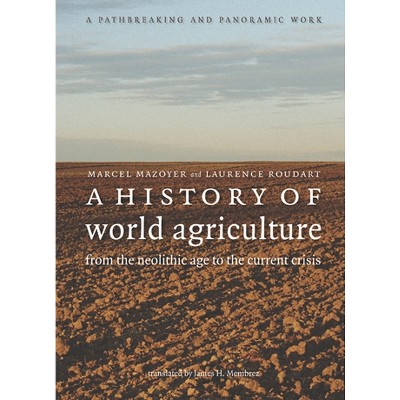$29.99 when purchased online
Target Online store #3991
About this item
Highlights
- Thomas D. Rogers's history of a modernizing Brazil tracks what happened when a key government program, created in the 1970s by the nation's military regime, aspired to harness energy produced by sugarcane agriculture to power the country's economy.
- About the Author: Thomas D. Rogers is associate professor of modern Latin American history at Emory University.
- 306 Pages
- History, Latin America
Description
About the Book
"Thomas D. Rogers's history of a modernizing Brazil tracks what happened when a key government program - created in the 1970s by the nation's military regime - aspired to harness energy produced by sugarcane agriculture to power the country's economy. The National Alcohol Program, known as Proâalcool, was a deliberate economic strategy designed to incentivize ethanol production and reduce gasoline consumption. As Brazil's capacity grew and as international oil shocks continued, the regime's planners doubled down on Proâalcool. Drawing financing from international lenders and curiosity from other oil-dependent countries, for a time it was the world's largest oil-substitution and renewable-energy program"--Book Synopsis
Thomas D. Rogers's history of a modernizing Brazil tracks what happened when a key government program, created in the 1970s by the nation's military regime, aspired to harness energy produced by sugarcane agriculture to power the country's economy. The National Alcohol Program, known as Proálcool, was a deliberate economic strategy designed to incentivize ethanol production and reduce gasoline consumption. As Brazil's capacity grew and as international oil shocks continued, the regime's planners doubled down on Proálcool. Drawing financing from international lenders and curiosity from other oil-dependent countries, for a time it was the world's largest oil-substitution and renewable-energy program.Chronicling how Proálcool experimented with and exemplified the consolidation of government, agribusiness, large planters, agricultural and chemical research companies, and oil producers, this book expands into a rich investigation of the arc of Brazil's Green Revolution. The ethanol boom epitomized the vector of that arc, but Rogers keeps wider development imperatives in view. He dramatizes the choices and trade-offs that ultimately resulted in a losing energy strategy, for Proálcool ended up creating a large contingent of impoverished workers, serious environmental degradation, and persistent hunger. The full consequences of the Green Revolution-fueled consolidation continue to take a toll today.
Review Quotes
"An important addition to a growing scholarly literature on late twentieth-century industrial agriculture. . . . [A]n invaluable contribution to Green Revolution scholarship and Brazilian studies."--H-LatAm
"Agriculture's Energy challenges us to seriously reconsider our approach to modern agriculture if we really want to solve the many global crises, from energy to climate to food security, that we face today."--Journal of Social History
"A compelling history . . . Rogers's work proves the breadth of methodologies that environmental history can use to answer pressing questions about the means and goals of sustainability transitions in a context that prioritizes the monetization of solutions over the well-being of humans and the environment."--Environmental History
"Deeply researched and pathbreaking. . . . Rogers elegantly details the human impact of Brazil's development model."_Agricultural History
"In this deeply researched and carefully structured account, Rogers first locates Proálcool within the history of the Brazilian sugar industry and the nation's broader ambitions for economic development and agricultural modernization. . . . Agriculture's Energy invites reflection on one of the starkest contradictions of the Green Revolution."--H-Environment
"Rogers demonstrates his prowess as a researcher through his analysis of development strategies in Brazil. His extensive archival research, complemented by interviews with influential policymakers and local business leaders, along with his long-term commitment to agro-environmental histories, have yielded innovative and well-substantiated outcomes."--A Contracorriente
"Rogers does an outstanding job tracing the historical complexities of the ethanol industry, which he demonstrates cannot be thought of in isolation from a larger narrative of agricultural modernization."--Hispanic American Historical Review
"Rogers's book is essential for graduate students, social scientists, historians, and environmental historians interested in Latin American Long Cold War studies, being also, due to its clarity, a great reading for undergraduates concerned with new energy sources."--Canadian Journal of Latin America and Caribbean Studies
"Understanding what went wrong during Brazil's first ethanol boom is critical because the country is currently in the midst of another, even as it models itself as a global leader in fighting climate change by producing renewable energy through low-carbon agriculture. Let's hope that this important book is read widely beyond academia."--i>The Americas
About the Author
Thomas D. Rogers is associate professor of modern Latin American history at Emory University. He is the author of The Deepest Wounds.Dimensions (Overall): 9.21 Inches (H) x 6.14 Inches (W) x .69 Inches (D)
Weight: 1.04 Pounds
Suggested Age: 22 Years and Up
Number of Pages: 306
Genre: History
Sub-Genre: Latin America
Publisher: University of North Carolina Press
Theme: South America
Format: Paperback
Author: Thomas D Rogers
Language: English
Street Date: December 6, 2022
TCIN: 1004205931
UPC: 9781469670454
Item Number (DPCI): 247-36-1222
Origin: Made in the USA or Imported
If the item details above aren’t accurate or complete, we want to know about it.
Shipping details
Estimated ship dimensions: 0.69 inches length x 6.14 inches width x 9.21 inches height
Estimated ship weight: 1.04 pounds
We regret that this item cannot be shipped to PO Boxes.
This item cannot be shipped to the following locations: American Samoa (see also separate entry under AS), Guam (see also separate entry under GU), Northern Mariana Islands, Puerto Rico (see also separate entry under PR), United States Minor Outlying Islands, Virgin Islands, U.S., APO/FPO
Return details
This item can be returned to any Target store or Target.com.
This item must be returned within 90 days of the date it was purchased in store, shipped, delivered by a Shipt shopper, or made ready for pickup.
See the return policy for complete information.
Trending Non-Fiction


$22.40
Buy 1, get 1 50% off select books, games & more
5 out of 5 stars with 3 ratings

$14.20
MSRP $27.00
Buy 1, get 1 50% off select books, games & more
4.8 out of 5 stars with 554 ratings

$12.54
MSRP $22.00
Buy 1, get 1 50% off select books, games & more
4.6 out of 5 stars with 14 ratings

$20.18
was $24.50 New lower price
Buy 1, get 1 50% off select books, games & more
5 out of 5 stars with 11 ratings

$10.99
MSRP $19.99
Buy 1, get 1 50% off select books, games & more
4.9 out of 5 stars with 287 ratings






